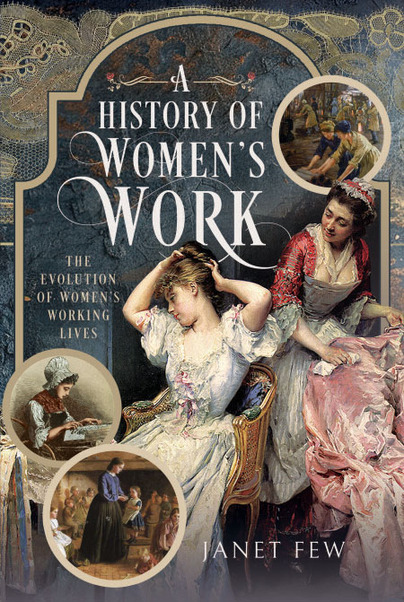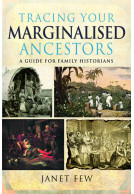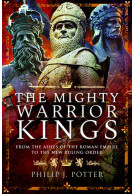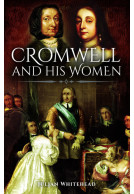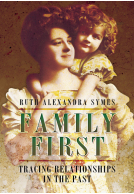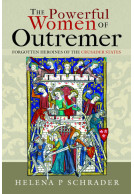A History of Women's Work (Hardback)
The Evolution of Women's Working Lives
Imprint: Pen & Sword History
Pages: 176
Illustrations: 12 mono illustrations
ISBN: 9781036105266
Published: 30th May 2025
(click here for international delivery rates)
Need a currency converter? Check XE.com for live rates
A History of Women's Work explores the often overlooked contributions of women throughout history, particularly in a patriarchal society where men have dominated the historical record. While men were more likely to leave traces – through wills, leases, and civic duties – women laboured behind the scenes, performing crucial yet unpaid tasks for their families and communities. In many households, women supported their husbands’ work, ran home-based industries, or sought paid employment despite societal restrictions.
This book delves into three main areas of women’s work: household tasks, home industries, and paid employment outside the home. Through case studies and practical research tips, it sheds light on the lives of these women, encouraging readers to uncover their own female ancestors' stories and contribute to a richer understanding of women’s history.
A very informative and well arranged book with fascinating insights into the women’s careers of the past. I have greatly enjoyed this read and will probably recommend it to quite a few friends.
NetGalley, Kateryna Mika
Rating: 5 out of 5 stars
NetGalley, Neveen Badr
In *A History of Women’s Work*, Janet Few presents a lucid, accessible, and deeply necessary exploration of women’s labor across the centuries—both paid and unpaid, visible and invisible. Drawing from a broad sweep of British and European social history, Few foregrounds the realities of daily life while offering a timely re-examination of how gender has shaped, constrained, and defined the working roles women have occupied throughout history.
Rather than offering a linear or monolithic account, Few presents a kaleidoscopic view of women’s labor—from domestic service, agricultural work, and cottage industries to the complex intersections of motherhood, caregiving, and community labor. She brings particular sensitivity to the roles often omitted from formal economic records: tasks vital to household survival, local economies, and the intergenerational transmission of knowledge.
What distinguishes this volume is Few’s careful contextualization. She resists the temptation to romanticize pre-industrial labor or overstate feminist “firsts.” Instead, she constructs a nuanced narrative that pays attention to class, regionality, and historical change. The lives of working-class women, rural laborers, widows, and servants are given as much attention as the exceptional few who broke professional barriers. Her chapters on early industrialization and wartime labor are particularly strong, capturing both the shifts in opportunity and the burdens that accompanied these transitions.
Few’s prose is clear, instructive, and enriched by case studies, archival excerpts, and the occasional personal anecdote, which together render the historical landscape tactile and humane. Readers with an interest in genealogy or social history will also appreciate her attention to documentation practices and the silences in historical records—where women’s contributions are often obscured or misattributed.
**Final Verdict:**
*A History of Women’s Work* is a thoughtful and empowering chronicle of labor, resilience, and adaptation. Janet Few has written a book that not only restores visibility to centuries of overlooked contributions but also invites ongoing reflection on the structures that continue to define women’s economic lives. Essential reading for historians, educators, feminists, and anyone invested in the social architecture of work.
Rating: 5 out of 5 stars
NetGalley, Chelsea Dugan
Smart, engaging, and so needed.
This book is exactly the kind of history I love—clear, focused, and full of purpose. A History of Women’s Work does a fantastic job shining light on the often invisible labor of women throughout the centuries. Janet Few doesn’t just tell us that women’s contributions have been overlooked—she proves it, and then gives those stories the space and attention they’ve always deserved.
I appreciated how the book is broken down into household labor, home-based industries, and paid work outside the home. That structure really helps show the range and complexity of what women were doing, often simultaneously, and often without recognition or pay. It’s also surprisingly readable—grounded in research, but never dense or dry. The case studies are vivid and specific, which helped connect the bigger picture to real people and lives.
One of the things I loved most was how Few encourages readers to dig into their own family histories. She includes practical tips for uncovering the stories of our female ancestors, who might not show up in obvious places like wills or land records but were absolutely vital to their households and communities. That personal invitation really hit home for me—it made the book feel both educational and empowering.
If you’re interested in women’s history, social history, or genealogy, this is a must-read. It fills in so many of the gaps left by traditional narratives and does it in a way that’s both accessible and inspiring.
The author's writing is very readable and I would consider this a very accessible book for readers who want to learn more about women's history in a meaningful way.
NetGalley, Bertie Cunningham
Rating: 5 out of 5 stars
NetGalley, Caroline Zenkel
This was a wonderful insight on the work of women throughout history. Things like this are incredibly important and yet they are not taught at school.
Rating: 5 out of 5 stars
NetGalley, Stefani Nikolova
For anyone interested in diving deeper into feminism and the evolution of women’s roles, this is a perfect read. As someone who loves a good “ragency” book, I was really drawn to how it explores women’s contributions through history—not just in formal jobs, but in all the behind-the-scenes work that often goes unrecognized.
It’s one of those books that makes you rethink everything you thought you knew about women and work. It’s not just about what’s in the spotlight but about all the things women have done quietly, with so much creativity and dedication.
Well-written and straight to the point, it delivers a fresh perspective on what “work” has really meant for women over time.
Informative with a nice writing style to keep one engaged. It covers an important historical topic in a way that is accessible to most audience. Focusing mostly on British women's work history, with exceptions in a couple chapters that expand a bit further. Kept me curious about each next chapter and I'm glad I was lucky enough to read this early.
NetGalley, Noura Ahmed
About Janet Few
Janet Few is an author and educator who has been on a quest to uncover and preserve the stories of her ancestors since she was a child. She has a particular interest in those who are overlooked by history and is a co-founder of the A Few Forgotten Women project, which seeks to tell the stories of marginalised women.







